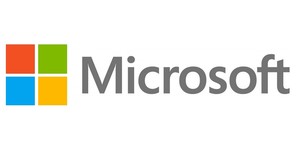Microsoft waves goodbye to FAT with exFAT deals
November 8, 2012 | 10:39
Companies: #microsoft #sharp

Microsoft has begun the long process of phasing out the FAT (File Allocation Table) filesystem and replacing it with exFAT, signing agreements with five hardware vendors to licence the format for use in peripheral devices.
First introduced in 1977 as an eight-bit storage format for Microsoft's BASIC language, the format received its last serious upgrade in 1996 with the launch of FAT32 as part of Windows 95 OEM Service Release 2 (OSR2.) Designed to extend the existing FAT16 format, FAT32 expanded the possible size of a partition on a hard drive from 2GB to 16TB but retained a file size limit that meant no single file could be larger than 4GB. While extensions to the format, including the open FAT+ standard, attempted to extend this to 256GB per file, few gained commercial traction in mainstream operating systems.
A lack of journalling and other data protection systems has led to a migration away from FAT and towards the New Technology File System (NTFS) first introduced in Windows NT 3.1 in 1993. Featuring a maximum file size of 16TB - expanded to 256TB in the NTFS implementation used by Windows 8 - the format is significantly more robust and adds POSIX-inspired features like hard links missing from FAT.
While NTFS has all but replaced FAT on the Windows desktop - while due to be replaced itself by the ReFS format used by Windows 8 - the lowly FAT format still rules the roost on removable devices where the 4GB file size limit doesn't matter. Its open nature, coupled with its wide compatibility with most mainstream operating systems - with full read and write support in every version of Windows since 95 OSR2, Apple's OS X and Linux - made it an obvious choice.
Now, however, Microsoft is looking to migrate people across to exFAT. First developed for Windows Embedded CE 6.0 in 2006, exFAT is non-backwards compatible but fixes many of the limitations of FAT32 including adding support for files larger than 4GB, improving storage efficiency for files smaller than 64KB, and lowering seek times in directories containing thousands of smaller files.
So far, exFAT's closed-source and proprietary nature, and its use of software patents to prevent third-party support being added without a licence, has limited its appeal. That appears to be changing, however, with Microsoft announcing deals with Sharp, Sigma, NextoDi, Black Magic and Atmos Global to add exFAT support to future products. Sharp will be adding the format to its future Android tablets, Sigma and NextoDi to its professional cameras and image storage products, and Black Magic and Atmos Global to their video recording systems.
These peripherals will be limited to use with selected operating systems thanks to a lack of exFAT support in third party products. Should they prove successful with consumers, the days of cross-platform devices could be drawing to a close and while Apple has licensed the format for OS X, open-source operating systems like Linux are likely to be left out in the cold.
First introduced in 1977 as an eight-bit storage format for Microsoft's BASIC language, the format received its last serious upgrade in 1996 with the launch of FAT32 as part of Windows 95 OEM Service Release 2 (OSR2.) Designed to extend the existing FAT16 format, FAT32 expanded the possible size of a partition on a hard drive from 2GB to 16TB but retained a file size limit that meant no single file could be larger than 4GB. While extensions to the format, including the open FAT+ standard, attempted to extend this to 256GB per file, few gained commercial traction in mainstream operating systems.
A lack of journalling and other data protection systems has led to a migration away from FAT and towards the New Technology File System (NTFS) first introduced in Windows NT 3.1 in 1993. Featuring a maximum file size of 16TB - expanded to 256TB in the NTFS implementation used by Windows 8 - the format is significantly more robust and adds POSIX-inspired features like hard links missing from FAT.
While NTFS has all but replaced FAT on the Windows desktop - while due to be replaced itself by the ReFS format used by Windows 8 - the lowly FAT format still rules the roost on removable devices where the 4GB file size limit doesn't matter. Its open nature, coupled with its wide compatibility with most mainstream operating systems - with full read and write support in every version of Windows since 95 OSR2, Apple's OS X and Linux - made it an obvious choice.
Now, however, Microsoft is looking to migrate people across to exFAT. First developed for Windows Embedded CE 6.0 in 2006, exFAT is non-backwards compatible but fixes many of the limitations of FAT32 including adding support for files larger than 4GB, improving storage efficiency for files smaller than 64KB, and lowering seek times in directories containing thousands of smaller files.
So far, exFAT's closed-source and proprietary nature, and its use of software patents to prevent third-party support being added without a licence, has limited its appeal. That appears to be changing, however, with Microsoft announcing deals with Sharp, Sigma, NextoDi, Black Magic and Atmos Global to add exFAT support to future products. Sharp will be adding the format to its future Android tablets, Sigma and NextoDi to its professional cameras and image storage products, and Black Magic and Atmos Global to their video recording systems.
These peripherals will be limited to use with selected operating systems thanks to a lack of exFAT support in third party products. Should they prove successful with consumers, the days of cross-platform devices could be drawing to a close and while Apple has licensed the format for OS X, open-source operating systems like Linux are likely to be left out in the cold.

MSI MPG Velox 100R Chassis Review
October 14 2021 | 15:04








Want to comment? Please log in.